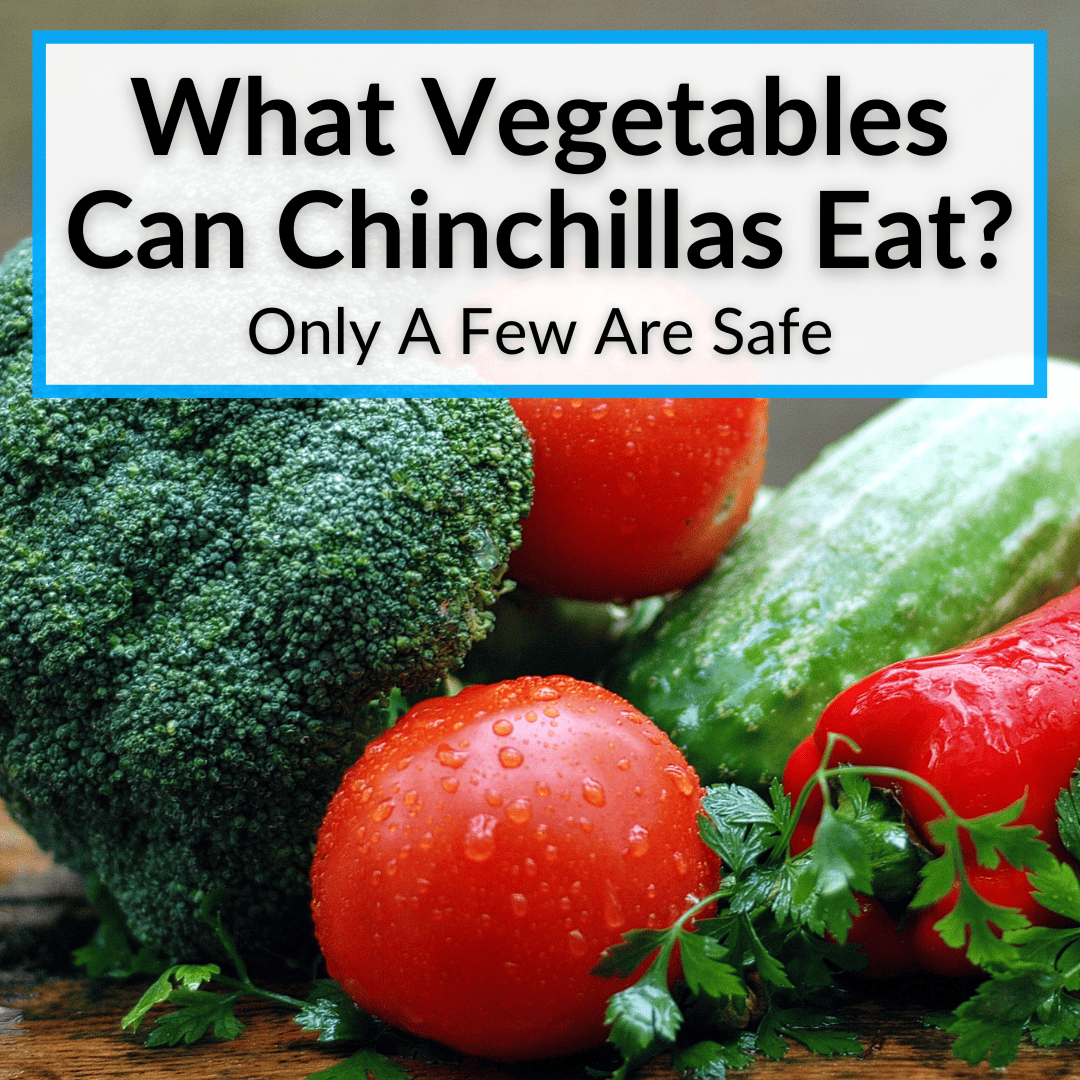
But finding reliable information on which foods are safe can be a challenge.
It’s one of the reasons I took the time to write Planet Chinchilla’s eBook: A Complete Care Guide for New Chinchilla Owners.
I understand the struggles and know that it is tough to provide the best care possible for your new chinchilla.
Especially when it comes to proper diet, and special treats like fruits, and vegetables.
Keep reading to earn everything you need to know about your chinchilla and veggies, including a table of all the different options and whether they are fine or not.
Contents
- 1 Can Chinchillas Eat Vegetables?
- 2 What Vegetables Can Chinchillas Eat?
- 2.1 Chinchillas Can Eat Only A Few Vegetables
- 2.1.1 Carrots
- 2.1.2 Carrot Tops
- 2.1.3 Sweet Potatoes
- 2.1.4 Bell Pepper
- 2.1.5 Celery
- 2.1.6 Can Chinchillas Eat Raw Potatoes?
- 2.1.7 Can Chinchillas Eat Brussel Sprouts?
- 2.1.8 Can Chinchillas Eat Peas?
- 2.1.9 Lettuce
- 2.1.10 Spinach
- 2.1.11 Leafy Greens
- 2.1.12 Green Beans
- 2.1.13 Corn
- 2.1.14 Cilantro
- 2.1.15 Parsley
- 2.1.16 Broccoli
- 2.1.17 Can Chinchillas Eat Asparagus?
- 2.1.18 Tomatoes
- 2.1.19 Cucumbers
- 2.2 Understanding What Chinchillas Eat In The Wild
- 2.3 Always Have Plenty Of Water Available For Your Chinchilla
- 2.4 A Basic Chinchilla Diet Is Always Best
- 2.5 Recapping Healthy Vegetables For Chinchillas
- 2.6 Recapping Dangerous Vegetables For Chinchillas
- 2.7 Don’t Forget About Safe Chew Items For Your Chinchilla
- 2.1 Chinchillas Can Eat Only A Few Vegetables
- 3 Chinchillas Can Eat Some Vegetables: Final Thoughts
Can Chinchillas Eat Vegetables?
Yes, a chinchilla can eat some vegetables. Chinchillas are herbivores, which means they consume plants as the bulk of their diet.
Chinchillas can have some vegetables in small amounts and on occasion. They should never be a major part of the diet. And not all vegetables are safe for chinchillas. Some will cause harm.
I’m sure that this answer probably leaves you with plenty of follow up questions.
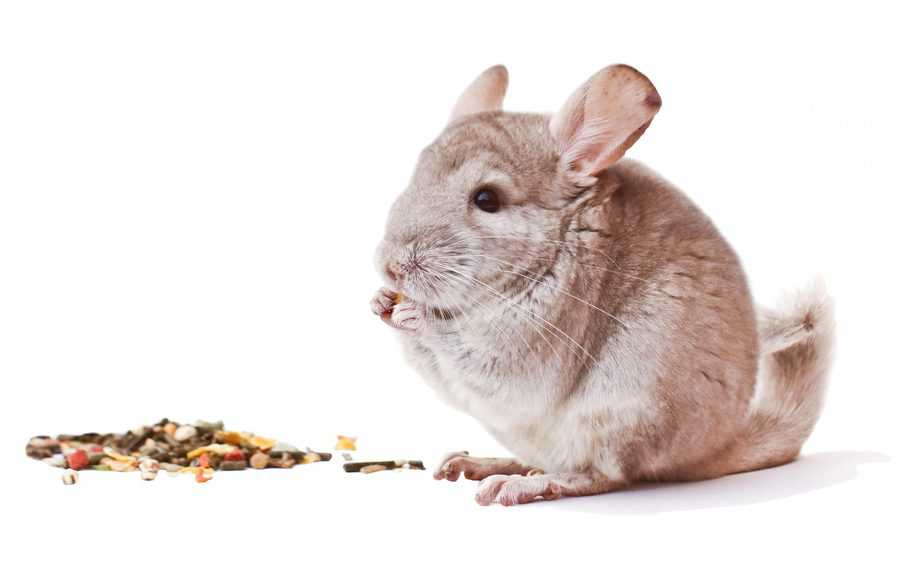
I was the exact same way.
To ensure that we cover this topic as thoroughly as possible, I’ll started this post with a table that breaks down all the common vegetables that chinchilla owners often ask about.
The table will give you a simple yes or no answer if that vegetable is safe for your chinchilla.
Following the table, we will dive into more of the specifics and answer more frequently asked questions.
What Vegetables Can Chinchillas Eat?
| Vegetable | Can A Chinchilla Eat It? |
|---|---|
| Celery | Yes |
| Carrot | Yes |
| Kale | Yes |
| Chard | Yes |
| Parsley | Yes |
| Cilantro | Yes |
| Pumpkin | Yes |
| Red leaved lettuce | Yes |
| Squash | Yes |
| Sweet Potato | Yes |
| Potato | Yes |
| Lettuce | Yes |
| Cucumbers | No |
| Asparagus | No |
| Cabbage | No |
| Broccoli | No |
| Peas | No |
| Brussels sprouts | No |
| Tomatoes | No |
| Arugula | No |
| Avocados | No |
| Beets | No |
| Basil | No |
| Butternut squash | No |
| Corn | No |
| Cauliflower | No |
| Dill | No |
| Dandelion Greens | Yes |
| Edamame | No |
| Eggplant | No |
| Grape Vines | No |
| Spinach | Yes |
| Tyme | No |
| Zucchini | No |
| Green Beans | Yes |
Now that we have the table breakdown behind us, let’s dive into the important aspects and some questions chinchilla owners often ask when it comes to providing their new chinchillas with vegetables.
Chinchillas Can Eat Only A Few Vegetables
Okay, friends, this is honestly probably one of the most frequently asked questions on google when it comes to owning a chinchilla.
I know this for several reasons.
First, I asked variations of these questions hundreds of times in the first months of having my new chinchilla 4 years ago.
Anytime, a vegetable would come to mind, I’d immediately think to myself…
Can my chinchilla have that?
To my surprise, this is when I began understanding that chinchillas have very sensitive stomachs and that you need to be very careful with what you offer them.
It’s also the hardest part of owning a chinchilla and it is common to make a mistake from time to time.
With chinchillas being herbivores, it’s natural to believe that they can have any kind of vegetable and not have any issues.
As you can see from the table, the opposite is true.
The number of different vegetables a chinchilla can have is small.
All vegetables can cause upset stomachs, excessive gas, digestive tract issues or worse symptoms and illnesses, if you offer to much them. Many vegetables are completely off limits.
For those reasons alone, you need to be sure you aren’t offering your chinchillas the vegetables on the table that are listed as “no” and that you only offer vegetables that are listed as “yes” in moderation and small serving sizes.
Let’s take a closer look at the individual vegetables and why chinchillas can, or can not, eat them.
Carrots
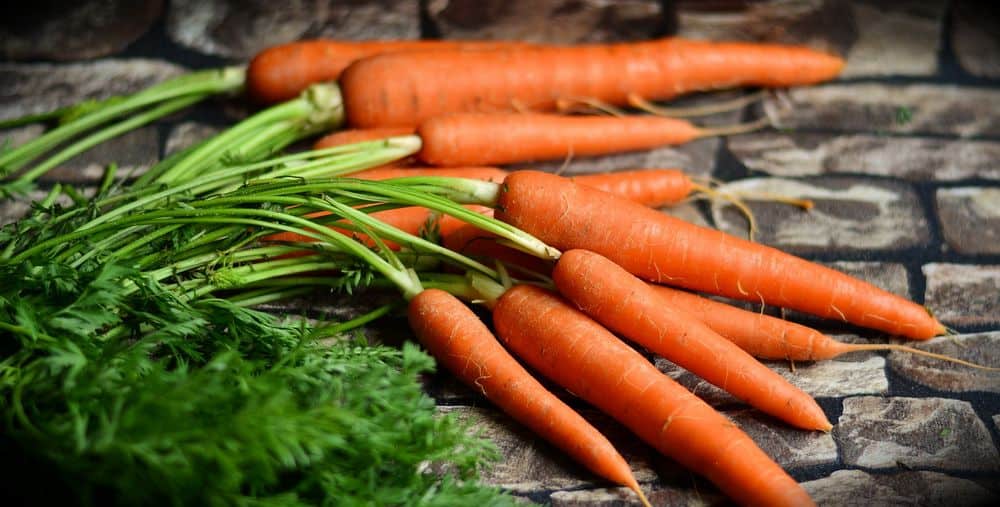
Are you wondering “are carrots safe for chinchillas?” If so you’re in luck. Chinchillas can eat carrots. They are perfectly safe for chinchillas, as long as they are consumed in moderation. In other words, they should only be given as a treat and only occasionally.
Keep the amount small. Maybe a quarter to half a baby carrot. The reason for this is the high sugar content of carrots, which can be hard on a chinchillas delicate digestive system.
Carrot Tops
Yes, a chinchilla can eat carrot tops as well. The same rules as apply as for the th root of the carrot: small amounts and only as an occasional treat.
Sweet Potatoes
Yes, chinchillas can eat sweet potatoes. Again, limit the amount. Sweet potatoes are fairly acidic, and they contain a lot of sugar and phosphorus. Both of these can cause issues if your chin eats too much sweet potato. Very small amounts only.
Bell Pepper
Chinchillas can eat bell peppers. They are actually one of the better vegetables for chinchillas to eat, because they contain fewer of the components that are hard on a chin’s stomach. But they do still contain some level of phosphorus, acid, sugar and calcium. As always, only give as a treat and in small amounts.
Celery

Chinchillas can eat celery. But it does have a high water content, which can cause bloating. That means you should feed them celery only in moderation.
Can Chinchillas Eat Raw Potatoes?
Chinchillas should not eat potatoes in any form: raw, cooked, or fried. They contain a lot of phosphorous and are quite acidic. They also contain solanine, which can be toxic. A very small amount should not cause any issues, but why bother? Potatoes don’t have enough nutritional value to make it worth it.
Can Chinchillas Eat Brussel Sprouts?
You should not feed your chinchilla Brussel sprouts, because they are quite acidic and can cause serious digestive issues.
Can Chinchillas Eat Peas?
Chinchillas can eat peas, but they probably shouldn’t While peas are not toxic, they contain a lot of protein, fiber and fat, and it is in such a configuration that it is likely to cause problems for your chinchilla’s digestive system. A tiny amount of pea is fine (like one pea once or twice a week), but refrain from feeding any more than that.
Lettuce
Chinchillas can eat lettuce, but this vegetable contains a lot of water and acid. For that reason, you should never give your chinchilla large amounts of lettuce, but a small piece occasionally is fine.
That said, it offers them little nutritional value, so there is really no point in feeding a chin lettuce. It is better to feed them other leafy vegetables. Chinchillas can have spinach, for instance. It has far more nutritional value than lettuce. But it also contains a lot of water, so the same warning applies.
Spinach
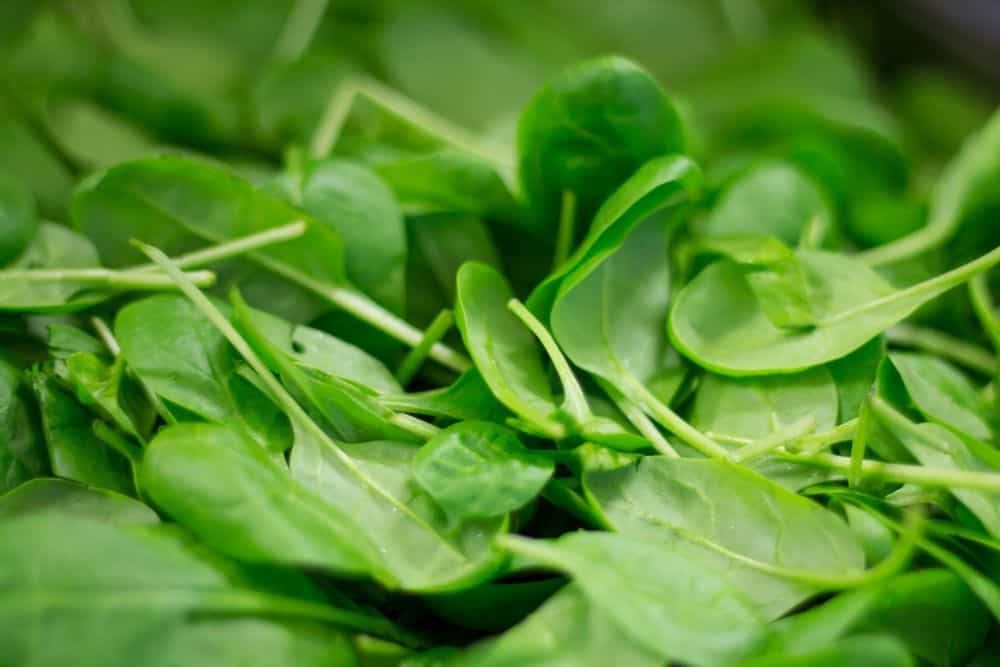
Yes, chinchillas can eat spinach. It is actually one of the best vegetables for chinchillas, though it does still contain a lot of water. For that reason, make sure you only feed a small amount. But in small amounts, spinach can give your pet a lot of vitamins and other nutrients.
Leafy Greens
Can chinchillas have leafy greens other than the ones listed above? It depends. Greens like lettuce that are full of water and have little nutritional value make so sense. Just avoid them. But denser greens like spinach, kale, etc. can make for good treats, as long as you limit them to a teaspoon once or twice a week. Again, it’s the water that is a problem.
Kale
As mentioned, kale is basically the same as spinach and other leafy greens. That means chinchillas can have kale in small amounts as an occasional treat, but it can’t be a main portion of their diet.
Green Beans
Chinchillas can eat green beans, but it is better if they do not eat them due to their high acidity. This is another vegetable that you are best off avoiding altogether.
Corn
Chinchillas can not eat corn. It contains teosinte, which is toxic to chinchillas. I also contains a lot of sugar and it does not have any nutritional value for a chinchilla, so there is no real reason to feed it to your pet anyway.
Cilantro
Chinchillas can eat coriander, which is also known as cilantro. They can eat it both fresh and dried, but the fresh version contains a lot of water. As you should know by now, this means you can only feed a tiny amount, around the size of your pinky finger. And no more than twice a week.
Parsley
Chinchillas can eat parsley, too. It is basically the same as cilantro and all of the same rules apply. Look at the previous entry above for guidelines on how much parsley to feed a chinchilla.
Broccoli
Chinchillas can eat broccoli, too. It is another vegetable that is fine in tiny amounts, but because it contains a lot of water, it is best to just avoid it.
Can Chinchillas Eat Asparagus?
No, chinchillas can not eat asparagus. Asparagus is toxic to chinchillas and you should not feed any amount of this vegetable to your pet.
Tomatoes
Chinchillas should not have tomatoes. The biggest issue is phosphorous. It is toxic for chinchillas and can cause brittle bones. The high sugar and water content, as well as the acidity, all pose problems for the digestive system as well. A tiny amount of tomato should be fine, but why even risk it?
Cucumbers
Chinchillas can have cucumbers, but only a very small piece once or twice a week. Again, the main culprit is water. And since cucumbers contain even more water than most vegetables, and they have virtually no nutritional value for chinchillas, this is one vegetable you are better off skipping.
Understanding What Chinchillas Eat In The Wild
This section isn’t necessarily about discussing all the food a chinchilla eats in the wild but giving a brief overview of how they consume food compared to other rodents.
Chinchillas typically consume most of their diet in the early mornings or later at night due to being crepuscular.
Crepuscular simply means that a chinchilla is most active with natural light cycles at dusk and dawn.

Chinchillas also consume food very slowly.
Keep this in mind when offering any permitted vegetables such as certain greens like lettuce. It’s best to monitor these food items as they eat for reasons we will discuss later in this post.
Always Have Plenty Of Water Available For Your Chinchilla
Time for some more fun facts.
If you weren’t already aware, vomiting is not a strength of a chinchilla. In fact, they can’t vomit at all.
This simply means that when you offer your chinchilla food items outside of the basic timothy hay or pellets, it’s important to be around in case your chinchilla struggles to swallow its food.
This can cause other issues if this happens, such as the following:
- Drooling
- Gagging
- Lack of appetite
- Difficulty breathing
Clearly, none of us want to see our chinchilla go through this, so always keep tabs on the situation when offering new treats to your chinchilla. And always ensure they have plenty of fresh, clean water at their disposal when they need it.
I personally use two water bottles that always remain full of purified water.

While this may be somewhat overkill, it makes me feel relieved that she has plenty of water at all times. And that if I have a slip of memory one day and forget to fill or top off one water bottle, she still has a backup water bottle to drink from.
If you want to read more about the best water bottles you can use for your chinchilla, you can view my post here.
A Basic Chinchilla Diet Is Always Best
The next topic is something I discuss in many posts on this website. Sticking to the basics is always the best for your chinchilla.
This consists of hay and pellets. This is what your chinchilla primarily needs to live a long and healthy life.
Use a reliable hay feeder and the correctly formulated chinchilla pellets and keep the rest of the items you can offer your chinchilla at minimums, and your chinchilla will be in good shape and healthy.
If you need to learn more about the best hay you can get your chinchilla, you can view my post here.
You can also catch up and read about chinchilla pellets here.
Treats Are Good, But Moderation Is Key
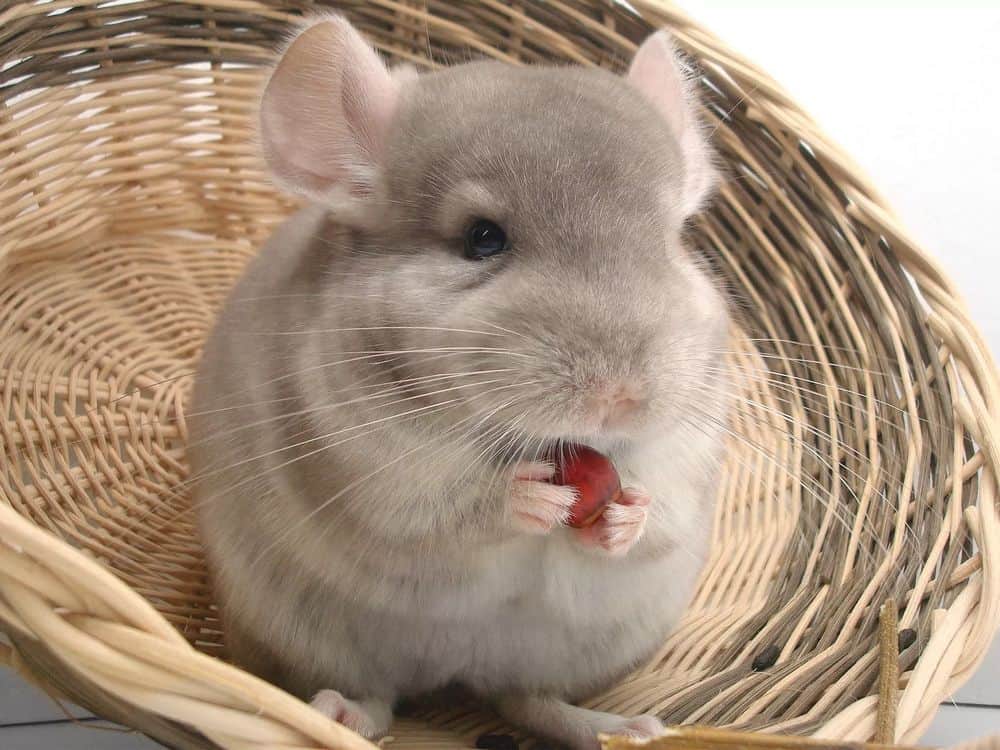
I know this is hard because it almost feels like you are being a lousy chinchilla owner and parent when you don’t offer treats in large amounts.
I know the feeling, and it can be tempting. However, I’ve learned that this is simply the best method to keep your chinchilla happy and healthy.
Don’t get me wrong, treats for your chinchilla are certainly okay to offer if they fall into the category of safe fruits or vegetables but not offering too often, or too many in one sitting is your best approach.
Recapping Healthy Vegetables For Chinchillas
I’m always worried that I may have new chinchilla owners on the site that scrolled a bit too fast past the important information and may still need the critical information.
Due to this, I wanted to provide a quick recap of some of the safe vegetables that you are clear to offer your chinchilla.
Here is that quick list of vegetables that your chinchilla can have one more time:
- Celery
- Carrots
- Kale
- Potato
- Sweet Potato
- Squash
- Spinach
- Lettuce (Some Greens)
- Red Leaved Lettuce
- Pumpkin
- Parsley
- Chard
Recapping Dangerous Vegetables For Chinchillas
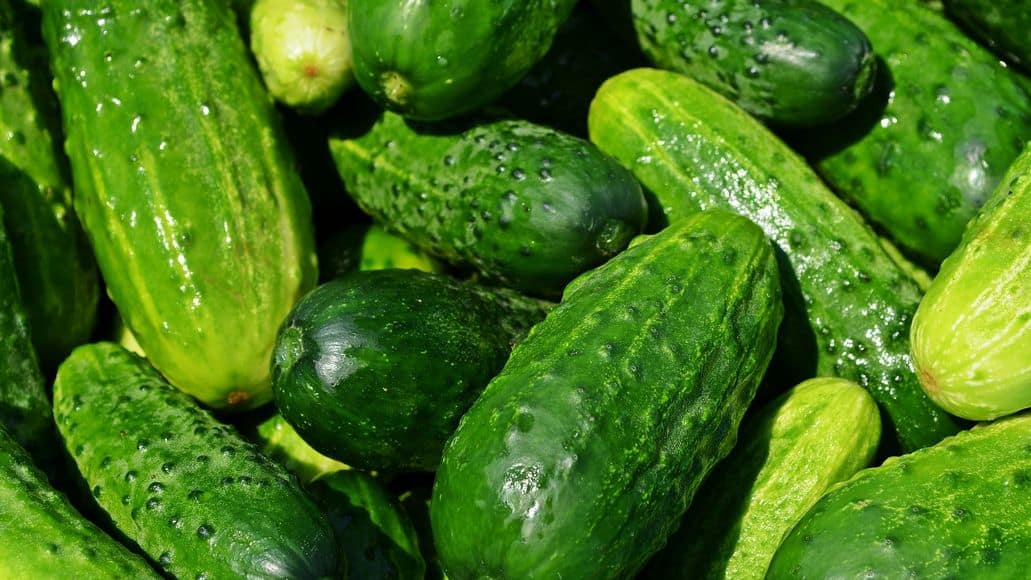
I also want to give you a brief recap of the vegetables that your chinchilla should not have.
Here is that quick list of vegetables that you are better off not feeding your chinchilla.
- Cucumbers
- Asparagus
- Cabbage
- Broccoli
- Peas
- Brussel sprouts
- Tomatoes
- Apples
- Pistachios
- Arugula
- Applesauce
- Avocados
- Beets
- Basil
- Butternut squash
- Corn
- Cauliflower
- Dill
- Dandelion greens
- Edamame
- Eggplant
- Grapevines
- Spinach
- Thyme
- Zucchini
Don’t Forget About Safe Chew Items For Your Chinchilla
The last topic I want to cover is a chinchilla’s ever-growing teeth and their need to file and grind their teeth down to remain healthy and infection-free.
Chinchillas need safe items to chew inside of their cage, and you can even provide these items when your chinchilla is out for playtime.
I have a post that discusses all the woods that are safe for a chinchilla to chew that you can see here.
Ensure that this is also something you keep in mind when you adopt a chinchilla in order to keep your chinchilla at peak health.
Chinchillas Can Eat Some Vegetables: Final Thoughts
At the end of the day, this post probably went into a deeper dive than necessary. Overall, chinchillas are very easy to care for.
Chinchillas also make excellent family pets. It just takes some due diligence at the beginning and reliable resources that you can trust for the information.
Vegetables are a food group that you can offer your chinchilla, but you always need to be educated and careful when doing so.
Chili and I wish you the best of luck with your new chinchilla and your journey ahead of you.
Share Your Thoughts
As always, I enjoy it when other chinchilla owners can help educate the readers even further.
What vegetables do you offer your chinchilla and which vegetables do you avoid? Do you have any recommendations or tips that the readers can implement with their new chinchillas?
Be sure to share your stories, thoughts, and concerns by dropping a comment below.
As always, Chili and I appreciate you stopping by and reading. We thank you again and wish you the best of luck. See you next time.
Alisa says
Your list of “can” eat you list potatoes, then when you scroll down you explain why chinchillas cannot have potatoes.
Josh says
You’re right, that’s a bit confusing. They can eat small amounts of cooked potato, but should not have raw potatoes.
aj says
google and other sights say chinchillas can eat apples!
Jim says
Hello my kids have two chinchilla girls and we got them a got them a treat bag that is suppose to be healthy and safe but i notice all the twigs are full of thorns but i cant find any info if we can safely feed it to the girls, kida afraid they are going to hurt them self on the thorns.
Is this safe and ok to feed them?
Healthy and fiber-rich snacks.
Supplemental feed for rabbits and all rodents.
Especially suitable for chinchillas and degus.
Extra fiber-rich with blackberries and raspberry twigs with thorns.
Contains blackberry and raspberry twigs with thorns, which makes the mixture extra rich in fibre.
100% natural.
Contents
Blackberry leaf 41%, strawberry leaf 31%, raspberry leaf 25%, rose flower
Josh says
I can’t really say without seeing it, but it should be fine, if they are specifically made for chinchillas (assuming it is a reputable brand). However, you could remove the thorns if you are worried.